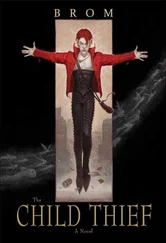In the streets a loudspeaker was announcing the movie Bugambilia , which my father was showing at his theater that Sunday.
The soldiers went to the afternoon screening and mingled with the girls, old people, and children.
The corporal arrived once the movie had already begun and insisted the lights be turned back on so he could find a seat. But once the movie started up again he didn’t look at the screen but at the women sitting next to him or in the aisle behind. And, bored by the darkness, he soon left.
Afternoons, from the windows of the Town Hall, the corporal spied on the comings and goings of women on their way to market.
The soldiers on guard made excuses to the campesinos who came to see him, saying he was busy in a meeting, although he was watching them from a side window, like a ghost or a recluse.
Two campesinos, father and son, came looking for him over many days without being able to see him. In his stead they met with the corporal’s secretary, who sent them to his uncle, the judge; who sent them to his cousin, the notary; who sent them to his brother-in-law, the police officer; who told them that the matter depended on the mayor, who was away on a trip … but if it was urgent they should go see the secretary, his nephew … Each one charged them five pesos, for time lost listening to their problem.
The corporal brought Ricardo el Negro’s mother to live with him. She followed him everywhere, like a shadow. He told people he was going to take her to Morelia because she was a good laundress, a good pozole maker, and a good lover.
Ricardo el Negro was very unhappy. Neglected by his mother, he sat outside the Town Hall waiting to see her go in and out, and he followed her from a distance down the street. Fearfully. Because the soldiers threw stones and threatened to castrate him.
Ricardo el Negro’s frightened face amused the corporal, who would happily have had the soldiers capture him to toy with.
Nevertheless, what pained Ricardo el Negro the most was not that his mother was living with the corporal but that whenever they happened to cross paths in the street she pretended not to know him.
She had padlocked the house so he stayed in a doorless room in my father’s orchard and slept on a mattress my brother put out for him. At mealtimes, we brought him something to eat.
One night when my mother was ill, my brother and I went for the doctor. In the square we saw someone sitting on a bench, hiding his head under a poncho as if he didn’t want us to see him. As we drew nearer, the figure compressed itself so firmly against the stone backing that we thought it wanted to disappear into the bench. My brother recognized him.
“Ricardo,” he said.
No one moved beneath the poncho.
“Ricardo,” my brother repeated.
This time, still motionless, a voice that seemed to be the poncho’s said, “I’m not Ricardo … I’m someone else.”
“What do you mean you’re not Ricardo … You’re nobody but him.”
“I’m someone else.”
Until finally my brother pulled down the poncho, revealing a pair of frightened eyes.
“We’re not going to hurt you,” my brother said. “We’re going to get the doctor.”
“I’ll come with you,” he said.
But after we said goodbye, that same night, he returned to the bench in the square and the snow-cone seller and the policeman threw a fishing net over him, dragged him off to a field, and thrashed him.
The next morning found him sprawled on a pruned rosebush, his face black and blue and his hair muddied. His shoes were missing, his shirt and pants torn. Solitary as a captive fox, he was surrounded by curious onlookers, and when the corporal saw him lying there he thought he was drunk and ordered a soldier to throw cold water in his face, remarking pityingly, “Poor asshole.”
Two days later, the corporal left the village with his soldiers, Ricardo el Negro’s mother, baskets of fruit, packages of filet, liver and chorizo, live chickens, and bags of cheese.
At midday he took the train to Morelia, seen off by the cacique, the secretary, the judge, the notary, the policemen, the priest, and four leading citizens.
“In your compositions on winter,” our teacher said, “don’t forget about snow.”
Quedito, asleep with his eyes open, suddenly dropped his pencil on his notebook. This prompted the teacher to ask him the “how many” questions: “How many meters in a liter? How many humerus bones in a hand? How many seas flow into a river?”
Questions that made Quedito, awakened by the nudge of another student’s elbow, begin to cry.
At the back of the classroom, amid the rolled-up maps and broken desks, he would doze off.
Or during recess, leaning against a wall, he intently studied a ray of light fracturing on some stones, seemingly oblivious to the voices of his schoolmates playing nearby.
“A plane loaded with …”
“Apples.”
“A plane loaded with …”
“Melons.”
Engrossed in his instant, like an animal or a god.
In the boy’s bathroom, someone had written:
Slutty
Susi
I know
your pink
pussy.
and
Eeny, meeny,
miny, moe
Catch your mother
by the toe
amid muddy handprints that seemed to have crawled towards the window as they wrote, slipped through the empty frame, and slithered into the girls’ bathroom.
The waning light shone drearily on these scrawls, and the names of female schoolmates, illustrated with male and female genitals done in colored pencils, were entangled, with tenderness and violence, in a coitus of shapes and letters.
One afternoon after school Juan and I stayed behind to play soccer. Our teacher was correcting exams in the classroom and had asked us to wait so she wasn’t on her own.
But after playing for a while, my stomach started to hurt, and feeling stiff and weary, I sat down on a rock to look at a yellow flower next to a smaller rock that seemed to sing with color.
Juan went to the bathroom to pee, about when our teacher was locking the classroom door. The corridors were already dark and on the roof a bat began to squeak.
All of a sudden, our teacher peered through the bathroom window to watch Juan peeing and, calling over to me in a hollow voice, told me she was going to go in to see how much he had peed.
Through a crack in the bathroom door, which didn’t close completely, I saw her take his member in her hand. Juan covered his face with his arms. And for a few seconds, or perhaps minutes, I heard him moan.
Then he ran out with his fly unzipped.
She lit a cigarette, exhaled the smoke, and approached me, smiling. Under her arm she carried the book Little by Little , which Juan had left behind. She asked me to bring it to him.
One week later, I was standing outside my house when Ricardo el Negro passed by carrying a football.
When I followed him he began running down the cobblestoned street ever more quickly, bouncing the ball off walls and doors.
Once on the field, he threw the ball far from the entrance and then ran to catch up with it, passing it from one foot to the other until it escaped him.
“Go fetch the ball,” he yelled at me.
“No.”
“If you don’t go, you won’t play.”
“I won’t play.”
We then sat down on the grass, looking at the ground. He was pensive, with a lock of hair on his forehead.
Finally, he stood up to get the ball. And he threw it hard at my face, without hitting me.
I threw it at him too, but missed. And he at me. And we started to play.
Before long he tired. He stopped the ball with his foot.
“I’m not playing anymore.”
He stared hard at me.
“Let’s go to the stream,” he said.
Читать дальше












